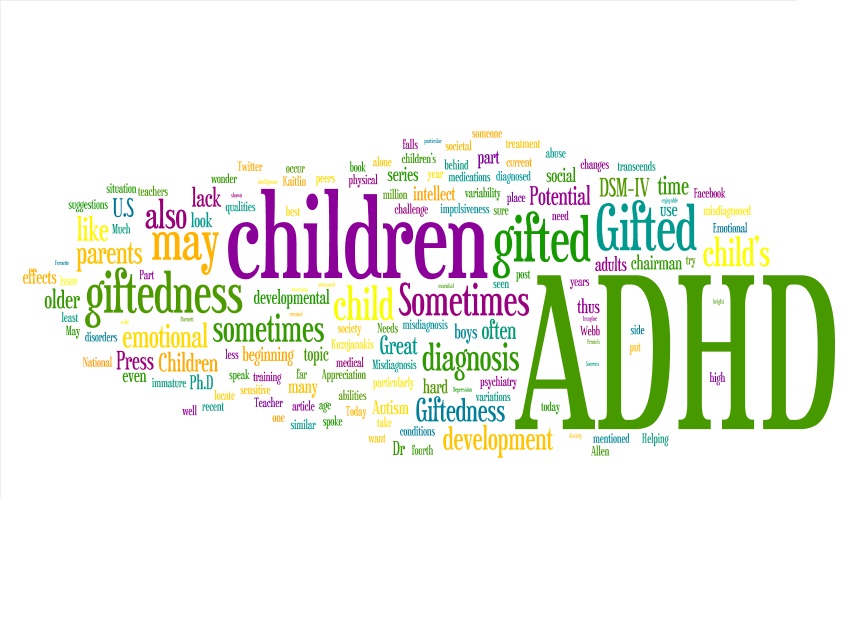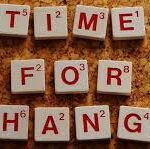When Verity walks into the room, one can’t help but to notice her self-assuredness. She moves with a sense of purpose. At age 44 and after multiple knee injuries, it’s been several years since she last ran regularly; but for many years, she was a competitor, having several marathons under her belt to prove that.
Since age 14, when she started playing volleyball, basketball and running track, activity, movement and keeping her eye on the prize, all came naturally to her. After so many years, she has effortlessly retained the solid muscularity of a mature athlete, and she exudes strength that only years of training can foster.
Verity is a special educator turned behavioral therapist. She loves the children that she serves and embraces the challenge of working with those with intellectual disabilities, who often are challenged by aggressive tendencies.
She is confident, “to the point” and candid about what she can and cannot, or will and will not, do.
She’s kind, but you know right away that she is not a person to be toyed with.
We started talking, not about anything in particular, and out of the blue, she mentioned,
“You know I think that my son is on the Spectrum. I know that, at the very least, he has ADHD.”
When I asked if she was certain, she replied,
“Oh, yes. He was diagnosed years ago. And I’m not surprised. I’m pretty sure that I have it, too. It’s just that when I was a kid, we didn’t know what to call it.”
She explained that during her years in Special Education, after working with so many children who fell somewhere within the spectrum of ADD and ADHD, she observed many traits and characteristics within her students that she also possesses.
Most notably, she referred to her high energy, difficulty in just “turning it off”, short attention span and constant need to move.
When describing her childhood, she recounts distinct challenges that she faced, and areas that were recurrent sources of trouble for her.
It appears that her childhood self was always in trouble for chatting with classmates, foot tapping, leg bouncing and the general inability to stay in her seat. Speaking out of turn was another impulse that she struggled to bring under control, and it often cost her higher grades that she might have earned.
As a young adult, she acknowledges that her propensities made it difficult for her to find jobs in which she would be fulfilled and successful. She still did not understand what she needed to be comfortable and successful. While she did not understand it all at that time, hind sight has helped her to see why success in these places may have eluded her.
One example of this was her brief stint as a police officer. The rigor and high demands of gaining admission to and graduating from the Police Academy spoke to the “rolling stone”, adventure-loving, full-of-energy person that she was. However, there were a few other aspects of an officer’s life that flew in the face of her high energy personality.
Sitting in a squad car for hours on end, while on patrol, was the antithesis of what her busy mind and perpetually energetic body needed. The life of an officer simply was not for her.
An even more short-lived career adventure was that of a bank teller. She lasted in this position for only 3 days.
Despite these setbacks, she can now recognize where some of her symptoms and characteristics of ADHD may actually have benefitted her.
From the age of about 9, she was often left to care for her three younger siblings. Her mother was a single parent, working overtime to make ends meet for 4 children and herself. She came to rely heavily upon Verity for help with seeing to the family’s needs. As a result, she was left to sort out things like how and when meals would be served; ensuring that everyone got to and from school safely and on time; making sure that clothes were washed and homework was done.
Once she got to high school, athletics became a major part of her everyday life. She played varsity volleyball and basketball and ran track. During those seasons, her afternoons were often spent juggling what needed to be done for her siblings; attending team practices and then walking the almost five miles home after practice each evening because the school bus had stopped running.
Right now, she works full time as a behavioral therapist; works part time as a care provider for children with special needs; manages the time needed to support her three minor children in football, volleyball, choir; and still makes sure that everyone gets home from school, does homework, gets fed and gets nurtured.
She loves the outdoors, stays active and when she describes herself, says, “I’m always ‘on’. It’s hard for me to just sit still and settle down at the end of the day. It drives my husband crazy”
When I look at Verity, I see a woman who has been very successful in her life’s endeavors. I see someone who moves about with intentionality. I see an action and goal-oriented person. I see a multi-tasker and a woman who effectively manages 4 people’s lives. On some levels, I even see that she’s an overachiever. But, in Verity, the image of ADHD is one thing that I don’t see.
What she told me, in not so many words, was that I needed to look closer.
She shared with me that her symptoms plagued her for a very long time and that they still have the ability to get in her way. However, she is aware of the aspects of her life where they actually do help her. She is now aware that her never-ending stream of energy enables her to accomplish more; and that her propensity to consider different ideas in rapid succession have helped her to be a strong multi-tasker.
When asked if she has any regrets about not having been formally diagnosed, she said that she doesn’t. She feels that knowing that she’d had a diagnosis might have given her a reason not to try as hard as she did. Being unaware of it, she moved through life addressing obstacles as they came, and with the expectation that she could always rise to the occasion… that there simply was nothing that could hold her back.
She believes that knowing of the diagnosis would have hampered her efforts and undermined her confidence in her own ability.
Not having had any other recourse, she was forced to cultivate skills and coping mechanisms that would help her to address daily challenges and to learn and grow from them. She feels that if she’d been diagnosed and treated, she may never have had to find ways around these routine difficulties.
She readily acknowledges, however, that ADHD exists along a continuum and that some individuals are afflicted and affected more profoundly than others. She acknowledges that for many people with ADHD, it rises to the level of a disability and interferes with their normal and essential functioning. She also admits that many in this group will need and benefit from medicinal solutions, as well as the use of innovative approaches to life’s obligations.
Fortunately, however, she was not affected in such a manner. Instead, she found ways in which her symptoms could benefit her.
She found that her seemingly endless energy helped her in the management and completion of tasks. Because focusing on any one item at a time was challenging for her, she developed the ability to start and complete multiple projects at a time.
This became essential to her in running her childhood household, as well as her family’s household in adulthood. It also made it possible for her to be successful as a special educator in having to remain abreast of all of the needs and challenges of each of her students; and in keeping them on track within the parameters of their (individual) IEPs.
Her wellspring of energy and love of the outdoors helped her to remain active, fit and healthy.
Her only regret about not knowing that she may have had ADHD was that she was unable to make better career decisions than she did.
As she was planning for her adult life and career, if someone had recognized that she might have ADHD, she could have been guided to a place of increased self-awareness at a much younger age. This may have meant gaining the ability to participate in more targeted decision making, while keeping all of her strengths and challenges in mind. This may have kept her out of the Police Academy, and away from a bank teller’s chair.
After speaking with Verity and listening to her recollection of her personal difficulties as well as accomplishments, and how they have been shaped by what she feels are her personal symptoms of ADHD, I realized that within this diagnosis, there may be opportunities for some of its symptoms to be channeled in the most positive of ways.
It became clear to me that there are probably many people whom I know to be successful, emotionally healthy and well-adjusted, who may have traits and characteristics of ADHD, but have managed, not only to control them, but to channel them into actions which are productive and esteem-building.
Their success may be owed to their own tenacity to try new things until they discover how to utilize these liabilities for their benefit. Or perhaps it is owed to one or more adult or facilitating figures who saw the potential benefit in what otherwise appeared to be disruptions; and helped them to harness these. Whichever is the case, it is evident that as a society, we should do all that we can to direct these children and students that we love so well, and to set them up for success.
Instead of disciplining 6 year old Susie for chattering with schoolmates during class time, why not use Susie’s gift of gab for the classroom’s benefit and for her own? Pre-empt the less productive chatter for more constructive endeavors. Make Susie, who talks a great deal because she is sociable and an extrovert, the class courier. Allow her to carry messages from her home room to the principal’s office. Allow her to deliver mail to other classrooms. This would get her moving and expending some excess energy. It would allow her a bit of a social outlet, while allowing her to speak briefly to the school staff, at an appropriate time, and to feel valued because she is helping within her community.
Maybe, by the time she reaches high school, Susie can be encouraged to join the Speech or Debate Team, which would allow a most productive application of what was previously seen as a flaw.
Consider, for a moment, the difference that such an approach could make for a child who is struggling with the ability to control their attention, behaviors and responses. Imagine the good that could come to him or her if they could be directed to constructive outlets for these tendencies. Consider what that might do for that child’s morale, their confidence and their dreams.
“For an adult with ADD, the key to success is to find the courage to be who you are. This means shaping your life to fit your impulsiveness, distractibility, high energy, and need for stimulation.”










